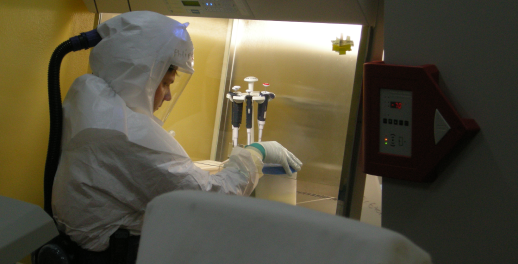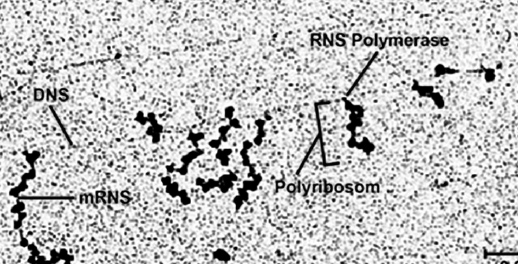In view of the Covid-19 pandemic, research is working on all fronts to combat the new corona virus (Sars-CoV-2). In the laboratories, experts are working flat out to find antiviral agents to treat this dangerous disease. A vaccine is the only way to prevent people from contracting the disease. The dilemma: the development and production of a vaccine usually takes years – too long in the current crisis. In order to accelerate the lengthy procedures, researchers at universities and companies are therefore resorting to novel technologies.
“I can produce an experimental vaccine within a few days”, says Steve Pascolo from the University’s Research Priority Program (URPP) “Translational Cancer Research” of the UZH. This is possible thanks to a new technology based on the genetic material of infectious pathogens. Traditional vaccines consist of dead viruses or virus particles that are injected into skin or muscle. The immune system then produces antibodies and memory cells against protein molecules of the virus, which become active during an infection and ward off the virus.
These methods could be shortened by directly injecting people with selected virus genes in form of their RNA. They induce the body cells to produce the corresponding virus protein, which activates the immune system to generate antibodies. This mRNA technology, which is based on the genetic material of the virus, is significantly faster than previous methods, although it is still in clinical trials. Commercial vaccines on this technology are not yet available.
Steve Pascolo is now in the process of producing a suitable virus gene of Sars-CoV-2 as a vaccine in required quantities. He is using a copy of a gene from the coronavirus, which is responsible for the characteristic spikes of the virus and should elicit a strong immune response. With these molecules on its surface, the virus gains access to the cells of the lung in case of infection. Other traditional methods are also trying to use these spikes to produce a vaccine.
The molecular biologist Steve Pascolo is able to multiply the viral gene very quickly thanks to the mRNA platform set up for the University Research Priority Program, which has been in operation for five years. It is otherwise used for innovative immunotherapies against cancer. The processes have been validated and enable the production of the experimental vaccine in three days. Before this experimental vaccine could be tested on humans, tests on experimental animals will be necessary. “The home-made experimental vaccine against Covid-19 should already be available for preclinical studies at the end of March”, says Pascolo. For the subsequent clinical studies, the process would have to be brought up to what is known as GMP quality.
The rapid RNA vaccine technology is not only being advanced at the University of Zurich, but also by biotech companies worldwide. The American company Moderna, for example, is already testing an mRNA vaccine against Sars-CoV-2 in initial clinical trials; the first administration to a test person took place in mid-March. The German companies Biontech and Curevac have also recently announced similar projects. Incidentally, Biontech is not an unknown company in Zurich, as the emeritus UZH immunologist and Nobel Prize winner Rolf Zinkernagel is on the Advisory Board. Pascolo sees these activities less as competition than as an opportunity for the new mRNA vaccine technology, which could prove its worth in this crisis situation. “It makes sense to optimize and apply this rapid procedure now.”


